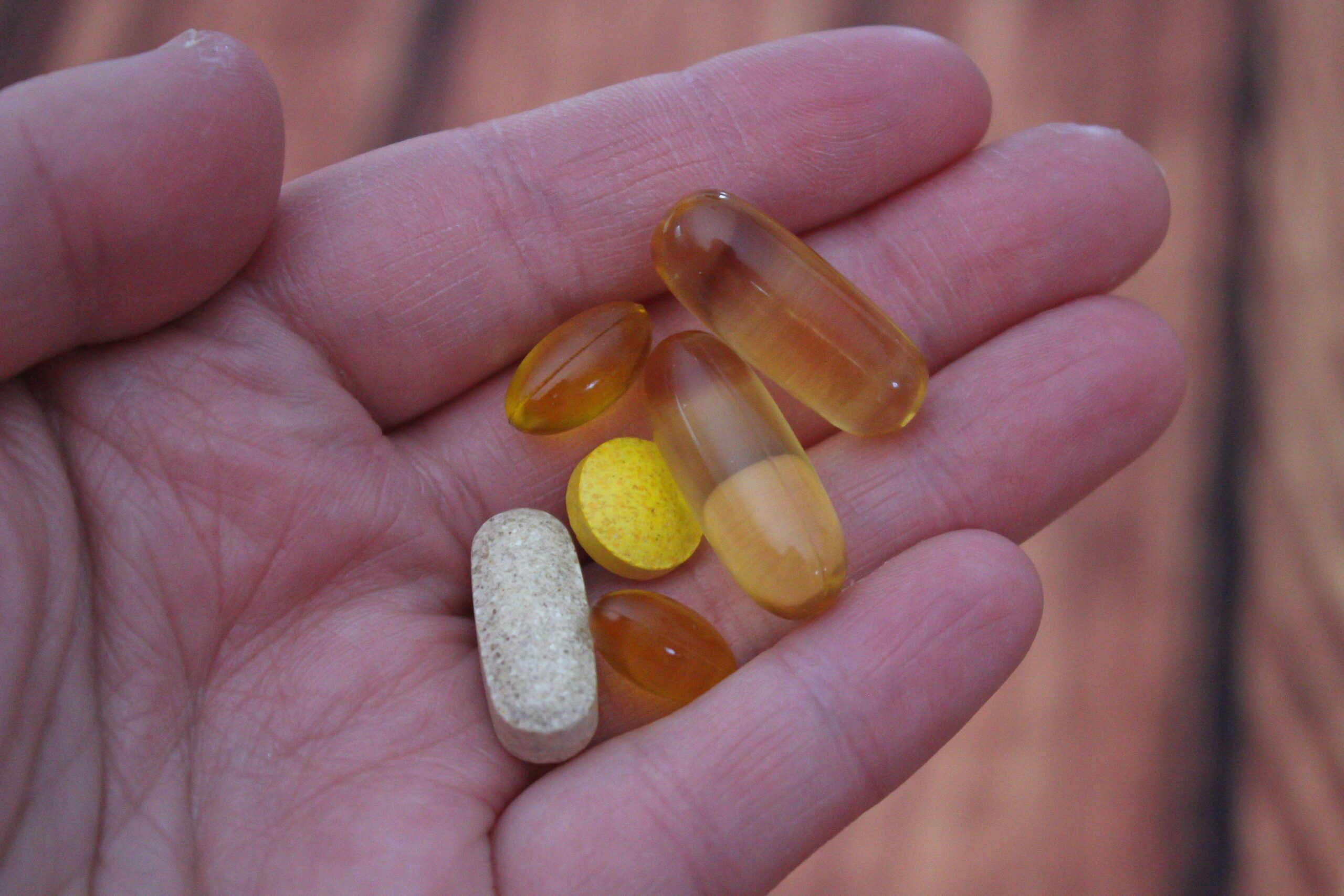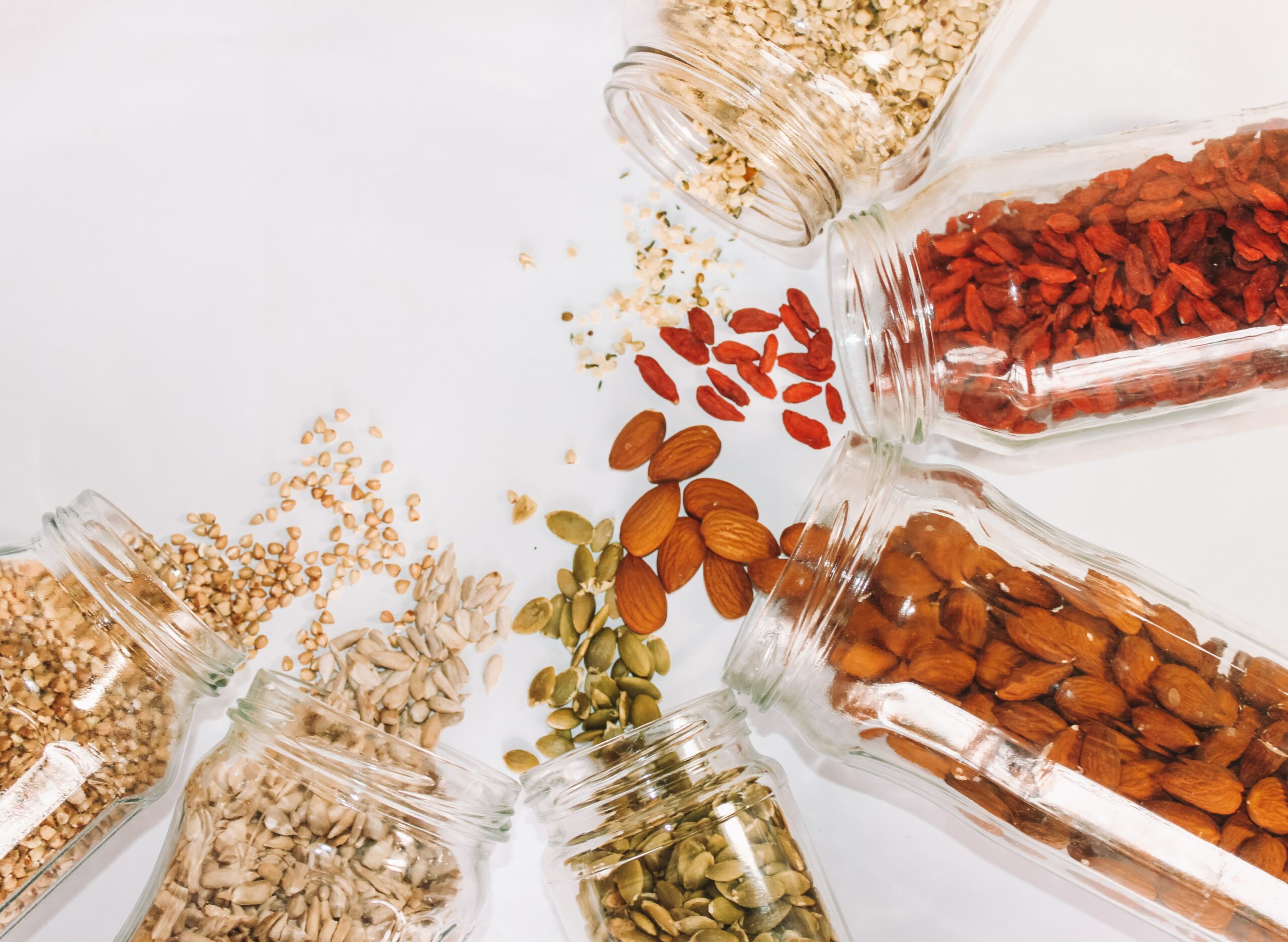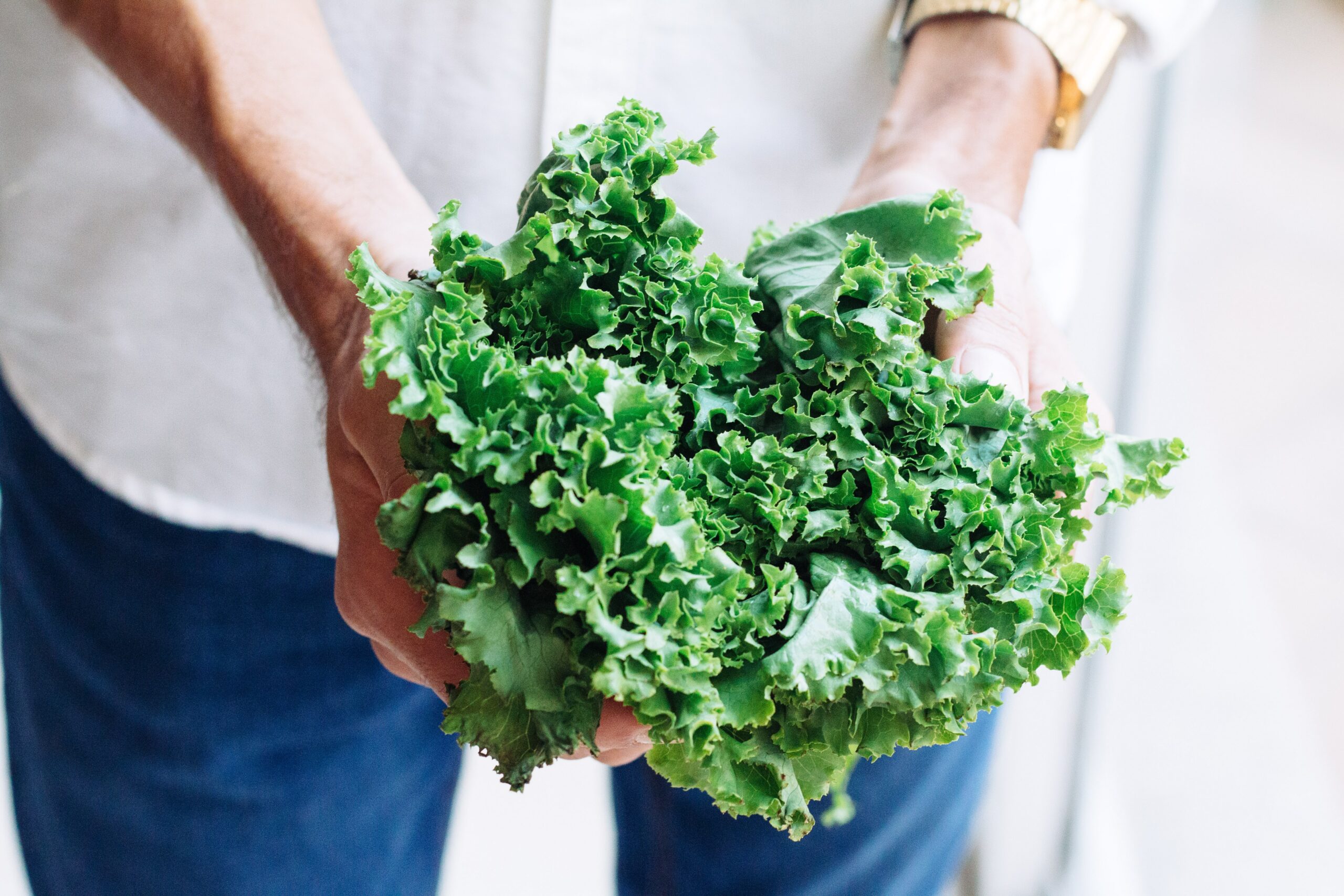
40% of people in the UK eat convenience food once a week or more, and that convenience comes at a price. The nutritional value of shop-bought lunches and junk food plummets in comparison to fresh fruit and veg and a home-cooked meal.
Without nourishment, vitamin deficiencies skyrocket, and people cannot live healthy lifestyles. The following article explains the top vitamin deficiencies, symptoms and how to get enough.
Vitamin D
60% of the population are considered as having insufficient levels of vitamin D. It’s the most common nutrient deficiency, described as ‘extremely concerning’ because it increases the danger of rickets and diabetes. Read more about diabetes here.
RELATED: Worried about your risk of diabetes? Take the Diabetes (HbA1C) Blood Test.
What is Vitamin D?
Vitamin D plays a vital role in development and function, affecting the absorption of other essential nutrients. The body creates vitamin D using ultraviolet rays from sunlight. The rays trigger the vitamin in the skin by reacting with a protein called 7-DHC.
You need vitamin D for bone health, strengthening your immune system, enabling the gut to effectively absorb calcium and regulating the phosphate in your bloodstream (required for energy, muscles and the nervous system). It also helps cells grow and is crucial for muscle mass and muscle movement.
Who is at Risk of a Vitamin D Deficiency?
- Pregnant women – The body takes the vitamins absorbed and directs them toward the fetus for development which can leave the mother with a deficiency
- Children under 5– The younger a child is, the more rapidly they grow and, therefore, can deplete their vitamin D levels faster than older children and adults.

- People who stay indoors– Considering the body creates vitamin D from sunlight, this can lead to an absence of nutrients.
- Vegans– Dairy is a significant source of vitamin D. Therefore, vegans are at a higher risk of a deficiency as they do not consume any dairy products.
RELATED: Do you want to cut down on meat and dairy but are worried about getting the proper nutrients? Read Should You Go on a Vegan Diet?
- Anyone with darker skin– People with dark skin tones have higher levels of melanin which gives the skin its pigment. The more melanin your body has, the harder it is to absorb and convert vitamin D.
- Over 65’s – The older a person gets, the more their body slows down in converting and producing vital nutrients. They also tend to spend more time indoors and have a reduced appetite which can affect vitamin D levels.
- People with excess body weight– When the body carries excess fat, it struggles to function efficiently and produce essential vitamins.
RELATED: Want to know how much vitamin D you need? Read Soak Up Vitamin D.
Signs of Vitamin D Deficiency
Although there are signs of vitamin D deficiency, many people are asymptomatic. That means you could not be getting enough yet still be at serious risk of health defects.
- Depression– There’s a reason people get the winter blues, and that’s due to the lack of sunlight. It can trigger mental health issues such as depression because vitamin D releases serotonin (a happy hormone).
- Exhaustion– It’s essential for converting food into energy.
- Unable to sleep – Vitamin D is responsible for releasing melatonin (a sleep hormone in the brain).
- Hair loss– The vitamin is critical in producing healthy hair follicles, causing hair to fall out if you aren’t getting enough.
RELATED: If you’re a male experiencing hair loss, read the article, 8 Causes of Hair Loss in Men.
- Bone achiness – Considering vitamin D is crucial for bone strength, it’s no surprise that you may experience aches and pains if you do not have enough in your diet.
- Always getting ill – It plays a significant role in your immune system. If you do not have enough, your body will not have the defence it needs to fight illness.
- Feeling weak– Your muscles and muscle movement depend on vitamin D. If your muscles start to shrink and you struggle to move them, it could be a sign of a deficiency.
RELATED: Are you experiencing these symptoms, or aren’t sure you’re getting enough vitamin D? Take a Vitamins Blood Test.
How to Get Enough Vitamin D
- Fatty fish– A great source of vitamin D, fatty fish like salmon, tuna and mackerel is a must in your diet.
- Eggs– Egg yolks are rich in vitamin D and excellent for nutritional value.
- Liver– Beef and fish liver are packed with nutrients. It’s the first place to start if you struggle with a deficiency.
RELATED: Want to know how to keep your body healthy? Read 10 Foods to Lower Your Cholesterol Today.
- Fortified breakfast cereals– Branflakes, Weetabix, and Special K are a great way to get your fibre and nutrients in the morning.

- Milk– Diary milk, soy and almond contain vitamin D and make a healthy addition to cereals and cups of tea.
- Vitamin D supplement– The lack of sunlight in the UK means getting enough vitamin D through food alone is hard. The NHS recommends 400 IU, particularly over autumn and winter.
RELATED: Did you know that taking the incorrect supplements can negatively affect your health? Read How to Avoid Overdoing Supplements.
- Orange juice– A simple way to get vitamin D. However, orange juice is relatively high in sugar so ensure you only drink about 150-240 ml daily.
- Oats– Making porridge, overnight oats or oat cakes is a fantastic source of vitamin D.
Calcium
3.5 billion people are at risk of calcium deficiency due to an unbalanced diet. Calcium is a crucial part of our diets; without it, you will struggle to live a healthy lifestyle. Keep reading to understand the symptoms and how to avoid a calcium deficiency.
RELATED: Want to keep up with your overall health? Take an Advanced Well Woman or Well Man Blood Test
What is Calcium?
Calcium is a mineral crucial for healthy teeth and strong bones (bones store 99% of calcium). It also assists in wound healing by clotting the blood, regulates the nervous system and keeps the heart in good condition.
Who is at Risk of a Calcium Deficiency?
- Lactose Intolerance– A lot of calcium comes from dairy products. Therefore if someone is lactose intolerant, they are at a higher risk of developing a calcium deficiency.
- Vegans – Like anyone with lactose intolerance, vegans do not eat dairy products and are less likely to get enough in their diet.
- Anyone who has a vitamin D deficiency– Everything’s linked! Vitamin D helps absorb calcium, so not enough could stop your body from sufficiently taking in the nutrient.
Signs of Calcium Deficiency
- Brittle nails – If your fingernails snap or peel easily, it’s a sign you could have a calcium deficiency.
- Fainting – A lack of calcium can make you feel dizzy and cause fainting episodes.
- Cramping– Muscles can cramp and spasm if they do not get enough minerals.
- Tiredness– Not enough calcium will make you feel sluggish and sleepy.
RELATED: Feeling exhausted all the time? Take a Tiredness and Fatigue Blood Test.
- Weak bones– Your bones may easily snap, or you could get aches and pains because they are not strong enough.
- Numbness and tingling– Your body needs enough calcium to assist blood flow, and you may experience tingling, particularly in your hands and feet, a sign that your blood is not reaching all areas of your body.
- Irregular heartbeat – Calcium keeps the heart beating healthily.
How to Get Enough Calcium
- Milk – Full-fat milk is packed full of calcium. However, ensure you consume only a little as it is high in fat and can cause weight gain.
- Cheese– A few slices of cheese a day may keep the doctor away. The body also finds it easier to take calcium in dairy than in plant-based foods. Balance it well with other nutrients.
- Seeds– Chia, flax, hemp, poppy, pumpkin and sesame seeds are small nutrients bursting with calcium.

- Yoghurt– Normal yoghurts are high in calcium. If you have concerns about fat intake, try the low-fat versions and check the back of the label to ensure you get enough nutrients. You can also try Greek yoghurt – it’s not as high in calcium but is packed with protein and probiotics.
- Salmon– Whether canned or fresh, oily fish is a fantastic source of calcium.
- Almonds– This power nut is full of calcium and other nutrients.
- Calcium supplements– Available in pill or powder form, a calcium supplement could give you the extra boost you need.
Iron
30% of the global population has an iron deficiency, a nutrient most commonly found in leafy greens. Unfortunately, many people skip vegetables or replace them with sugar and fast foods. It can lead to a deficiency and cause significant health problems, such as anaemia.
RELATED: Can’t stay awake? You may be anaemic. Take an Anaemia Blood Test to find out.
What is Iron?
Also known as ferritin, iron is a protein needed for energy. It enables red blood cells to transport oxygen, maintains muscle mass and bones, and is responsible for a healthy liver.
RELATED: Feeling tired, weak and can’t focus? Read Do You Have an Iron Imbalance?
Signs of an Iron Deficiency
- Exhaustion– If you fall asleep at work, struggle to keep your eyes open or need to stop and rest constantly, it may indicate an iron deficiency.
- Headaches– Iron helps carry oxygen around the blood, so without it, you may not get enough oxygen to the brain.
- Constantly feeling cold– Iron releases energy to keep you warm, causing constant, always shivering and cold hands and feet.
RELATED: Feeling colder than everyone else? It’s time to check your iron levels with the Iron Deficiency Home Test Kit.
- Unusual sugar, junk food, and high-starch cravings– Your body craves foods that release energy quickly, giving you a temporary burst to keep you awake and warm. However, it doesn’t last for long.
- Weak nails– If your nails constantly snap, peel and break, you probably do not get enough iron.
- Pale skin– Your complexion may look washed out without enough iron because your blood is not pumping oxygen sufficiently around your body.
How to Get Enough Iron

- Leafy greens– Kale, spinach and broccoli are rich in iron.
- Beans, peas and lentils– These are packed with iron and will give you the nutrition you need.
- Iron-rich carbohydrates – Brown pasta, wholemeal bread, oats and fortified cereals will give you a healthy dose of iron.
- Meat– Chicken, beef, and pork make a tremendous nutritional addition to iron levels. Ensure you balance it out with vegetables to keep your levels healthy.
- Iron supplements– If you have low iron levels, your doctor may recommend iron supplements.
Get the Correct Vitamins for a Healthy Lifestyle
Vitamin deficiencies are prevalent in the UK, so it’s not unlikely you need to ensure you’re getting enough. Keep an eye out for signs and symptoms of the most common deficiencies, eat enough nutrients and take supplements where required. If you want to stay on top of your health, we advise regular blood tests to catch any asymptomatic deficiencies and reduce health issues.
I Want to Take an Advanced Vitamins Blood Test.
If You Found This Article Useful, You May Also Like:
FAQs
What are the symptoms of a lack of vitamins?
Extreme fatigue, unexplained weight loss, tingling in hands and feet, feeling weak, shortness of breath and dizziness.
What are the main vitamin deficiencies?
Vitamin D, iron, calcium, iodine, magnesium, vitamin A and B12 are the most common vitamin deficiencies. You can get enough through supplements and a proper diet.
What happens when your vitamins are low?
If you do not have enough vitamins, your body will be unable to produce the energy it needs. You might struggle with depression, lose hair, feel weak and dizzy, and keep catching illnesses. Sometimes people with vitamin deficiencies are asymptomatic (they do not show any signs), so it’s crucial to get a regular vitamin check.

